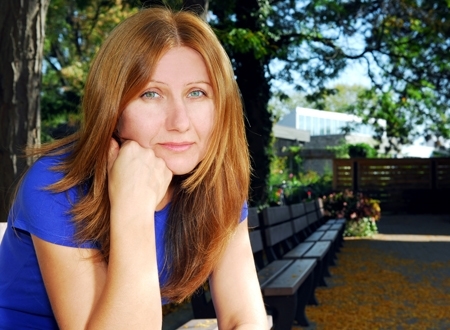A groundbreaking 2012 study published in the International Journal of Eating Disorders found that about 13 percent of women over 50 exhibit eating disorder symptoms. To put that in perspective: Breast cancer afflicts about 12 percent of women. We would wager most people are keenly aware of the pervasiveness of Breast Cancer, but how many people are aware that eating disorders are so prevalent in an older popular?
Most of these women developed eating disorders as teenagers or young adults, recovered, and then relapsed; others never recovered; and some of these women actually have developed their eating disorder for the first time as adults.
Many of these women are entering a new chapters in their lives or are finding themselves encountering new life obstacles that are triggering such as:
- Marriage
- Divorce
- Kids (example: pressure to lose pregnancy weight)
- Aging Parents
- Empty nest
- Work
One way that many of these women deal with this changing sense of self is to diet or overcontrol some aspect of their body. Couple these life events with societal pressures that it’s “not ok to age” and the burden for a woman to focus on her appearance can quickly become overwhelming for her.
Eating disorders often take their toll, not only on a woman’s health but also their relationships, marriages, etc. This is why early treatment is critical.
Health Effects in Older Women
The health effects of eating disorders in older women are also a major concern. As women age, their bodies become less resilient, making recovery from the devastating effects eating disorder that much more complicated. There are greater numbers of gastrointestinal, cardiac, bone and even dental effects of eating disorders as women mature. Many women are also hesitant to bring up their eating disorders with their health care providers.
“Recent studies on aging have revealed that being at a lower body weight actually decreases your life expectancy as you age. This is contrary to the popular belief that being at a very low body weight is good for your health.” says Lesley Williams of The Meadows Ranch, “Regardless of your age now, there is no better time like the present to get help and get a handle on your eating disorder. The Meadows Ranch has extensive experience in meeting the needs of mature women struggling with eating disorders. “
Statistics about just how many women develop eating disorders later in their lives are also hard to find reliable because the illness often goes undiagnosed by doctors. Weight loss and changes in appetite are common complications of another illness or side effects of certain medications. And physicians certainly aren’t looking for anorexia or bulimia in older age groups.
The Johns Hopkins Mood Disorders Clinic published information about an Australian study that is among the first to investigate poor body image and eating disorders in older women. Karen Swartz, M.D., Director of Clinical Programs at Johns Hopkins School of Medicine, writes:
Investigators surveyed a random sample of 475 women ages 60 – 70 about their eating behaviors, weight history, and attitudes toward their bodies. Around 90 percent said they felt very or moderately fat, and 60 percent reported being dissatisfied with their bodies. The majority of women had a body mass index (BMI) of 25, which is considered just slightly overweight, and wanted to have a normal-weight BMI of 23. Over 80 percent of the women made efforts to manage their weight.
Four percent of the women (18 total) met the diagnostic criteria for an eating disorder: One had anorexia nervosa, two had bulimia nervosa, and 15 had symptoms of an unspecified eating disorder that did not meet the criteria for anorexia or bulimia. In addition, another 4 percent of the women (21 overall) reported a single symptom of an eating disorder, such as using laxatives, diuretics, or vomiting to lose weight, or binge eating.
Seek Treatment
Convincing older women to seek for their eating disorder can be complicated by the fact that many women with eating disorders do not see themselves as having a problem. While parents can force their teenager daughter to get treatment, this is something that is much more difficult to do with an older woman.
While more doctors need to take into account that eating disorders exist in older woman and pay attention to the warning signs, women too need to understand that disordered eating is not something they are immune to experiencing either.
We Are Here to Help
We have treated eating disorders for more than 20 years. We know recovery from an eating disorder is absolutely possible. It’s happening every day at The Meadows Ranch. Based on feedback from patients, families and professionals, the vast majority of our patients remain committed to a life of health, balance and purpose. For additional information about the treatment of eating disorders, please call to speak to a Counselor at 866-390-5100 and we will contact you with the information you need.

